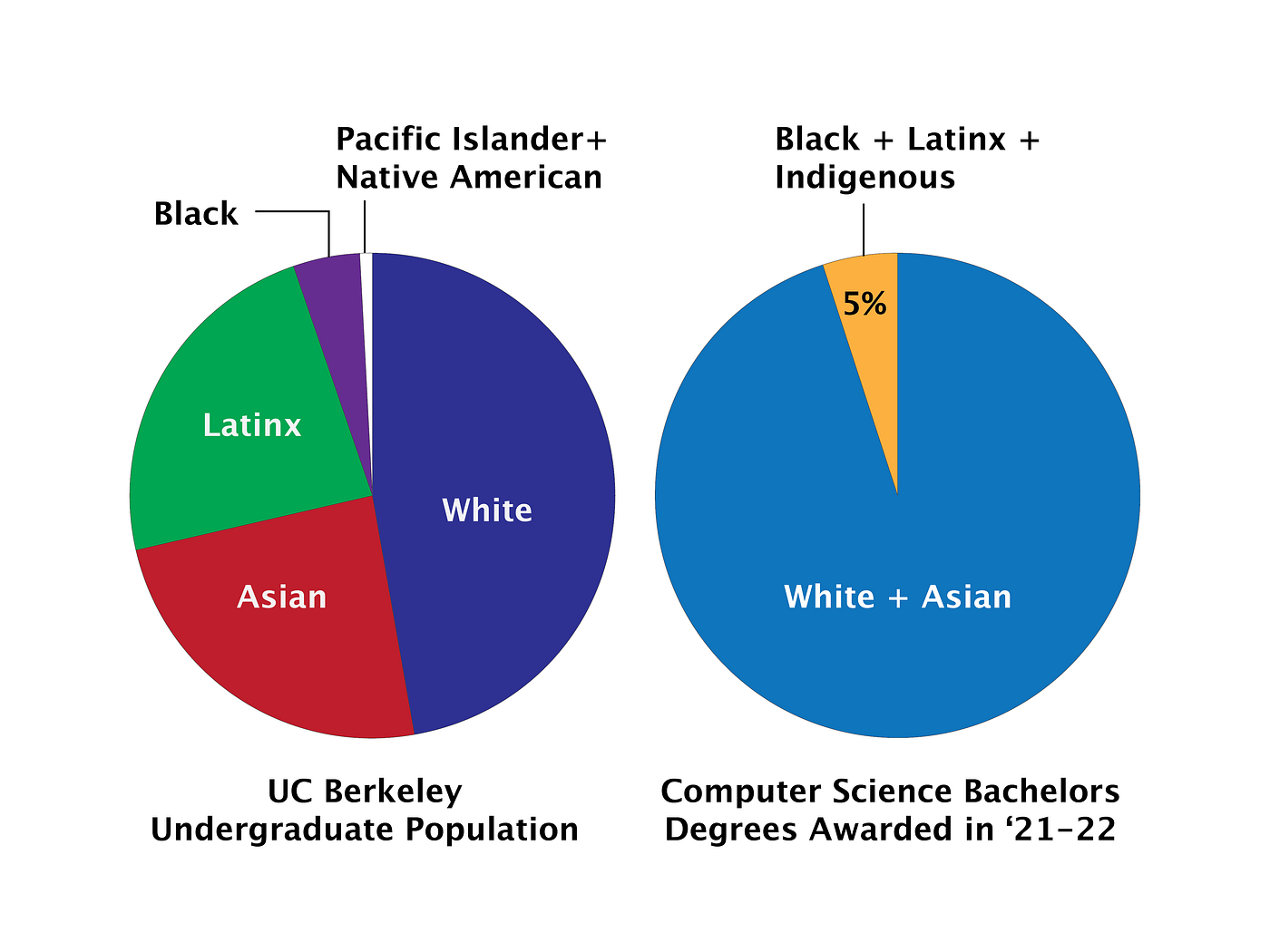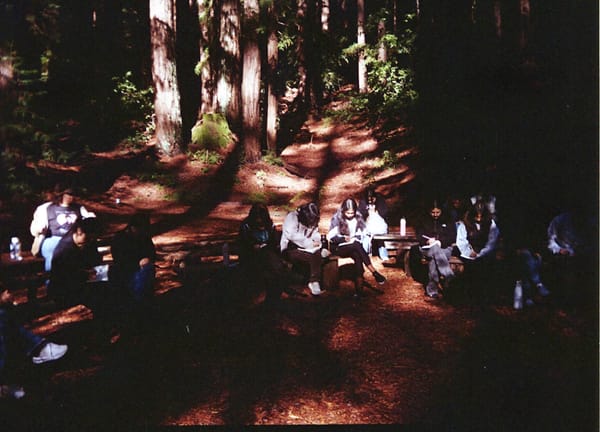Underrepresented Minorities in Computing at UC Berkeley
Underrepresented minorities at UC Berkeley are, well, very underrepresented. I think it's a problem and you should too.
Last updated on Feb 16 3:22PM with new data.
I’m mad. It’s 12:53AM as I write this, I’ve literally lost sleep over this and I hope that the statistics that follow will make you mad too.
I’ve written about being a Latinx student in Berkeley Computer Science before [4]. What I’ve experienced and seen is nothing new. But right now, negotiations are going on to determine the future of course staffing for the Berkeley CS program. I’ve been sitting in on and contributing to these discussions—often being ignored, dismissed or invalidated.
Before I dive straight into why I’m mad, a little context on UC Berkeley and the CS department as a whole. I took the time to put together the following graphic.

As you can see: Black, Latinx and Indigenous (BLI) folk make up over 25% of UC Berkeley’s undergraduate population [1]. I think we can do better considering California’s demographics [2]. But that’s a topic for another day. Yet, BLI folk at Berkeley made up only 5% of the total degrees awarded in Computer Science in 2021–2022 [3]. Not included in the graph is that of that 5%, URM women make only 1% of total degrees awarded in CS. It is important to note that there is an intersection element at play. Ultimately, I think these statistics are unacceptable.
We could spend hours discussing the possible reasons for this, ranging from difference in high school curriculum to financial status affecting how much time a student has for school. A key part of this is representation in course staff.
A friend and I decided to manually go through some of the public course staff pages and find out how many were underrepresented minorities. We surveyed 11 different courses, which will be listed shortly. The following graphic is the compilation of that data:

Out of 336 course staff positions, we found that only 5 were held by students that could be considered underrepresented minorities. (Notably white Latinx folk were excluded.) That’s slightly more than 1%. Of those 5, 2 were Teaching Assistants, which are generally considered more ‘prestigious’ and often are the public face of the course.
One of the URM summed it up pretty nice in their bio on the course staff page (blurred for privacy):

I will be linking the courses here should you want to verify for yourself: CS 61A, CS 61B, CS 61C, CS 70, CS 152, CS 161, CS 162, CS 164, CS 170, CS 182, CS 186. This is all public information.
Having representation on course staff is not only nice to have, it is vital to ensure that students from underrepresented and underserved communities are able to succeed. I have already documented what happens when you don’t have that [4]. I’ve heard countless stories from too many friends where TAs have harassed them, sexually assaulted them, and called them stupid. How are we supposed to feel like we can succeed when we’re putting up with that?
It seems that everyone says they want more diversity, equity and inclusion, but when it comes down to it, not much is being done. Instead, it falls on student-run organizations to put in the work that the institution should be doing. (And I’ve seen how some student orgs even hurt BLI folk! Myself included.) There are so few of us, that it often feels like we’re fighting this battle alone.
I am personally calling on the EECS department to enter into conversation with the organizations and people that have already been doing the work of recruiting and retaining BLI students to their department. I hope you will join me in requiring the EECS department to do more than literally nothing.
References
[1] https://opa.berkeley.edu/campus-data/uc-berkeley-quick-facts
[2] https://www.census.gov/quickfacts/CA
[3] https://pages.github.berkeley.edu/OPA/our-berkeley/degree-recipients-by-major.html




